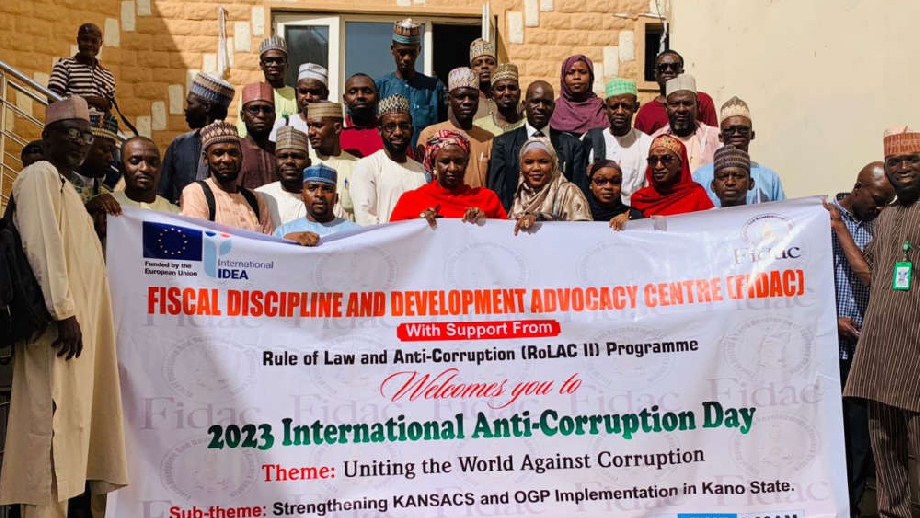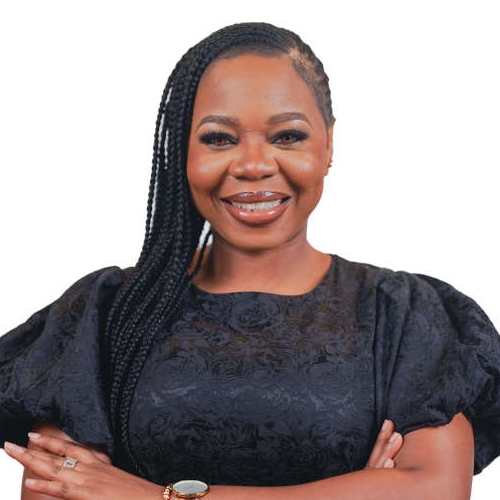
A non-governmental organization, Fiscal Discipline and Development Advocacy Centre (FIDAC) is advocating for the Proceeds of Crime Law in Nigeria 2022 domestication.
The Executive Director of FIDAC, Dr. Abdulsalam Muhammad Kani, disclosed this in an event organized with support from Rule of Law and Anti-Corruption (RoLAC II) to mark this year’s International Anti-Corruption Day.
International Anti-Corruption Day is a global observance dedicated to raising awareness about the detrimental effects of corruption on societies and economies worldwide.
The day serves as a call to action to combat corruption, promote transparency, and uphold ethical values in both public and private sectors. This year’s theme is “Uniting the World against Corruption.”
However, in Kano, the sub-theme is “Strengthening KANSACS and OGP Implementation in Kano State.”
Speaking at the event, Dr. Kani listed high poverty levels, insecurity, unemployment, and inadequate funding for education and agriculture as the negative consequences of corruption in the country.
According to him, despite having the Kano State Public Complaints and Anti-Corruption Commission (PCACC) Law, “There is no law guiding how assets recovered can be managed” in the State
Dr. Kani further stressed that to halt the menace, the group will pay an advocacy visit to the state governor and the State House of Assembly to ensure prompt domestication of the law in the State.
The Head of Secretariat, Kano State Anti-Corruption Strategy (KANSACS), Isah Mansur Bello, presented a paper on the implementation, successes, challenges, and the way forward of KANSACS.
KANSACS was signed and ratified by the State Government with support from the Rule of Law and Anti-Corruption (RoLAC) Programme. The strategy, now a working policy, outlines a five-year plan for curbing and addressing corruption issues in Kano State.
It focuses on preventive measures through its public engagement and ethical re-orientation pillars. It also provides globally acceptable approaches for the enforcement, sanctions, and recovery of the proceeds of corruption.
The ratification of the strategy followed a series of engagements and meetings with the Chairman and staff of the Kano State Public Complaints and Anti-Corruption Commission (PCACC).
During his presentation, Mansur said KANSACS is challenged with a “Lack of management support and tone at the top of the MDAs, staff movement, and retirement, inadequate funding, and lack of logistics and offices.”
Mansur, however, said to move forward, KANSACS has channeled its strength in key sectors within the State Government, LGAs, and Private Organizations to halt the menace.
After Mansur’s presentation, a six-man panel led by the Executive Director of the Center For Advocacy in Gender and Social Inclusion (CAGSI), Maryam Garba Usman, was formed to discuss emerging issues, challenges, and remedies for fighting corruption in the State.
The panel agreed that to halt corruption in the State, all and sundry must keep the public sector honest, transparent, and accountable, stop dishonest practices, and expose corrupt activities and risks.
On its part, the Anti-Corruption Programme Manager of the European Union’s Rule of Law and Anti-Corruption (RoLAC II) Project, Dr. Emmanuel Uche, stressed that the “UN is ready to partner Nigeria to end all form of corrupt practices.”
When asked what would a corrupt-free Nigeria means to Nigerians, Uche said it would “see the return of Nigerians who traveled abroad for greener pastures.”
According to him, a corrupt-free Nigeria means the country would “begin to lead as the true giant of Africa.”


